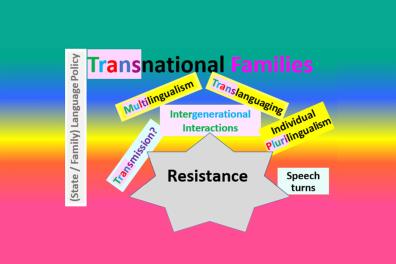Worshop "Resistance in Family Language Practices", le 23 mai

Lundi 23 mai 2022 - 09:30-16:00 - Maison de la recherche - Auditorium Dumézil
Inalco - 2, rue de Lille - 75007 Paris
Entrée libre
Contact : Voir l'e-mail
Resistance in Family Language Practices
Social practices are governed by power relations in which the strongest impose their will (Scott 1985). In family language practices, which are social practices, the oldest members have a natural hierarchical posture and impose their choices on the youngest.
In transnational families who are multilingual, the adults have more resources in the so-called heritage languages than the younger members. We sometimes observe the latter are invited with too much insistence to hear and/or use the heritage languages, or they are mocked or ignored. When adults try to coerce the youngest members, or make fun of them, these latter show a certain resistance (Istanbullu 2017, 386).
The workshop aims at bringing together researchers who study multilingualism and family language practices to communicate and discuss these phenomena of resistance during the interactions of transnational multilingual families.



Workshop "Resistance in Family Language Practices" - Affiche (840.35 Ko, .pdf)
Workshop "Resistance in Family Language Practices" - Programme (338.14 Ko, .pdf)